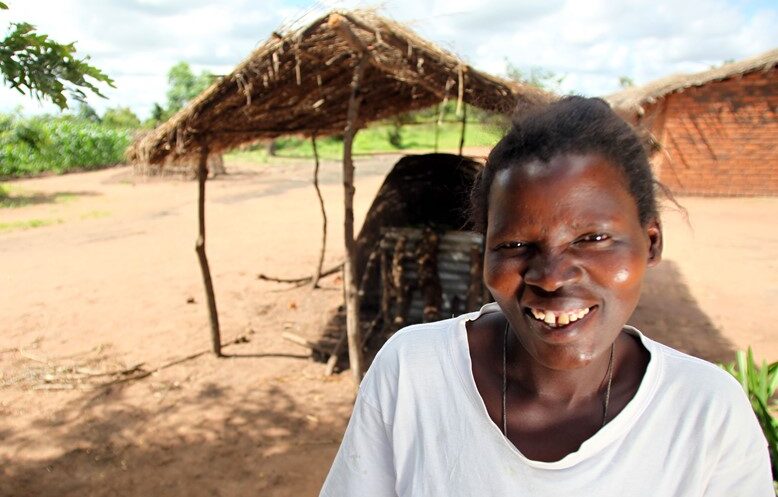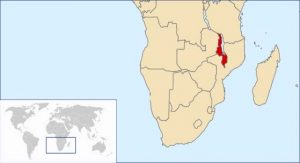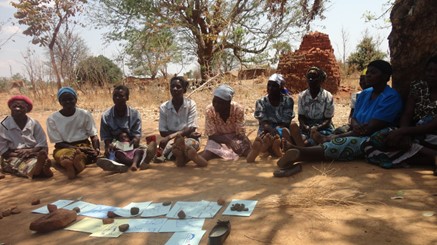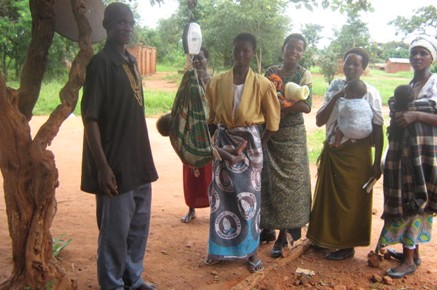Malawi: Rural community development
WHO IS THIS SHIPMENT HELPING?
“Poverty has spared no one,” writes Crossroads’ partners. In their work with rural communities, they see daily the real face of poverty. “94% of rural women and young farmers here spend time in poorly paid or unpaid work such as chores or supplementing men’s paid work with free labour, drawing water or carrying sand for construction,” they say. It impacts infrastructure like health clinics too. “Village clinics which service pregnant women and children under 5 in remote areas have inadequate facilities or none at all. With high unemployment, youth are vulnerable to exploitation, theft, substance abuse and prostitution, which continues the spread of HIV.”
All these are patterns that keep people poor and prevent communities from developing, but our partners are making a difference. Their projects focus on advocacy, education, counselling and business training. As well as supporting health, micro-enterprise and education, they teach women public speaking and negotiation skills that help them fight for their own human rights and access services they didn’t know they deserved. Likewise, their farming projects teach people more advanced agricultural methods that can yield more than twice the amount of food, and make them more resilient to droughts or sudden economic changes.
We are pleased to be sending a shipment of goods to support our partners’ projects across the board. As well as being distributed to needy families, schools and clinics, the goods will update and expand their facilities, which they say will allow them to employ more people and reach even more in the community with their development programmes, which have already impacted more than 200,000 people.
Women meet in our partners’ support groups to learn about money, business, health and their own human rights, increasing their ability to advocate for themselves and their children to break out of poverty.
Sendeza’s story
From age 17 when she had her first baby, bearing children was all Sendeza knew. She birthed 11 children in total, of which 4 died. “My body was not healthy and neither were my children,” says Sendeza. She was dependent on food aid from a nearby clinic, and her children were malnourished, but she had no time to seek advice or work that could have made her more independent. Thankfully, our partners met Sendeza and counselled her in things like family planning, home hygiene and generating income for the whole family. Today, she trains other women in need of similar support, and she loves that she can be part of their empowerment.
Most rural clinics for pregnant women and young children are desperately under-resourced. Our partners run roaming health programmes where women and babies can access health information and treatment, as well as education on raising healthy children.
Esitele’s story
Esitele remembers the day her husband left. She thought when he told her they were separating, that it was a joke, until the next morning he was gone, leaving her with twin 3-year-olds. “Life became tough,” says Estile, “and then tears could not change anything, so I decided to stop crying and stand up for my children.” She joined the village savings loan group, a scheme initiated by Crossroads’ partners, hoping it would help her save some money and to be able to borrow money when she needed it. “Things worked as I wanted,” she said. “I borrowed money and invested it in farming potatoes and groundnuts.” She used her farming profits to buy building materials and build a beautiful, strong, brick home for her and her twins, and to buy farm animals. “I am so happy, though I know I still have a long way to go,” says Estile. She is hugely grateful to our partners for their support and counselling, helping her and other women like her to be financially secure. This shipment will include goods to boost our partners’ women’s empowerment projects.
he told her they were separating, that it was a joke, until the next morning he was gone, leaving her with twin 3-year-olds. “Life became tough,” says Estile, “and then tears could not change anything, so I decided to stop crying and stand up for my children.” She joined the village savings loan group, a scheme initiated by Crossroads’ partners, hoping it would help her save some money and to be able to borrow money when she needed it. “Things worked as I wanted,” she said. “I borrowed money and invested it in farming potatoes and groundnuts.” She used her farming profits to buy building materials and build a beautiful, strong, brick home for her and her twins, and to buy farm animals. “I am so happy, though I know I still have a long way to go,” says Estile. She is hugely grateful to our partners for their support and counselling, helping her and other women like her to be financially secure. This shipment will include goods to boost our partners’ women’s empowerment projects.
(S5234)

Malawi snapshot
Population: 18 million
Capital: Lilongwe
Language: English, Chichewa
Landlocked Malawi is sometimes called the ‘warm heart of Africa’, for its culture of hospitality, however, the nation ranks among the world’s least developed countries. The country’s economic performance has historically been constrained complex factors including poor infrastructure, high population growth, and poor health and education outcomes that limit labor productivity.
The economy is predominately agricultural with about 80% of the population living in rural areas
Source:BBC Country Profile/CIA World Factbook

South Africa: Investing more in slum communities
WHO IS THIS SHIPMENT HELPING? In a slum on the outskirts of a South African city, a community group reached out to...
Sierra Leone: Investing in the nation's future
After the end of Sierra Leone’s extended civil war, a group of people who wanted to help the country rebuild decided...
Ukraine: The poor help those even poorer
Crossroads’ Ukrainian partner has, for many years, been working to bridge the gap between rapidly developing cities and rural communities that...




